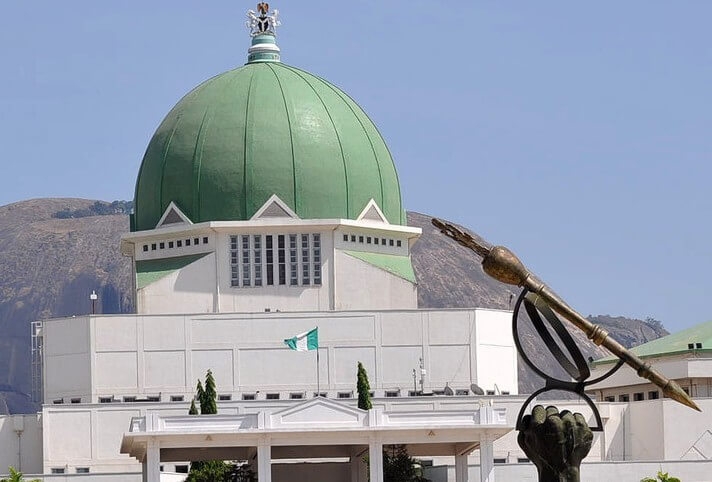
In his first inaugural address to the American people on March 4, 1861, President Abraham Lincoln said inter alia:
“This country, with its institutions, belongs to the people who inhabit it. Whenever they shall grow weary of the existing government, they can exercise their constitutional right of amending it, or their revolutionary right to dismember, or overthrow it.”
The newly elected American President in that address called Americans to vigilance, which he held, was the safest guarantee that government did not renege on its compact with the people. He said:
Advertisement
“While the people retain their virtue, and vigilance, no administration, by any extreme of wickedness or folly, can very seriously injure the government, in the short space of four years”.
Americans since that famous address have held successive administrations at the White house to account. Whilst they have not had to exercise their revolutionary right of outright overthrow of government, they have been virtuous enough (to use Lincoln’s words) in terminating any administration they considered negligent of their well being. Indeed the last presidential election in that country, eloquently speaks of the peoples power, which trumped established power blocs and entrenched interests.
How have we fared here by comparison?
Without mincing words, we have fallen short. Nigerians have repeatedly since 1979 shortchanged themselves, surrendering their power and sovereignty to government in a way that makes government the master and the people who ought to be the true repository of power, servants or slaves.
Advertisement
Rather than majestically and peremptorily assert themselves by using their vote to abridge derelict governments and recall errant representatives, Nigerians have whined and wrung their hands in seeming hopelessness. But are Nigerians really hopeless? Has the Nigerians constitution, which is the grundnorm stipulating the modus vivendi of government and the people emasculated them in any way?
The answer is clearly no. The Nigerian constitution empowers the people to terminate the lifespan of any government every four years through elections. It also guarantees them the right to recall erring or non-performing representatives.
In the 20 years or so that Nigeria has practised democratic governance since 1979; no single member of the National Assembly has been recalled by his constituents. This is despite mounting dissatisfaction with their performance.
That angst still pretty much holds today. In fact, it can be argued that Nigerians have never been more dissatisfied or displeased with their legislators as they do with the present crop of lawmakers in the National Assembly.
And that anger is not altogether misplaced. In the National Assembly today, there is a motley mix of journeymen, fraudsters, dunces and the benighted. For the most part, they are united in the desecration of social, moral and religious values through collusion with agencies of government in the mindless pillaging of the national patrimony.
Advertisement
The tragic thing is that rather than give purposeful vent to this anger by grabbing the erring legislators by the scruff of their necks and hurling them back to their constituencies in decided termination of their mandates, Nigerians have chased shadows. They have either been unmindful of or have completely ignored the very provisions of our constitution, which empowers them to sack or to use the appropriate terminology, recall the misguided representatives.
Specifically, sections 69 and 110 of the 1999 Constitution (as amended), deal with the issue of recall.
Section 69 says:
“A member of the Senate or of the House of representatives may be recalled as such a member if: there is a presentation to the Chairman of the Independent National Electoral Commission, a petition in their behalf, signed by more than one -half of the persons registered to vote in that member’s constituency alleging their loss of confidence in that member; and which signatures are duly verified by the Independent National Electoral Commission; the petition is thereafter, in a referendum conducted by the Independent National Electoral Commission within ninety days of the date of receipt of the petition, approved by a simple majority of the votes of the persons registered to vote in that member’s constituency.”
As can be seen, there is absolutely no ambiguity in terms of wording or intent in the provision above but it has been extremely difficult for Nigerians to explore this sensible option. Rather, like the biblical Esau, they have sold their birthright for crumbs to the very individuals they should have on a leash. And so, what we have are meaningless deprecation of the performance of legislators and sponsored marches to the National Assembly complex in Abuja, were for a pittance often provided by officials of the executive branch of government eager to divert attention from their monumental folly and misdeeds in office, they cut a sorry picture of a wasted and tactless generation.
Have wallowed in ignorance and folly for too long, Nigerians must surely now avert their eyes to the salient provisions of sections 69 if they find their actions of their representatives in the National Assembly, unbecoming and embarrassing. They must hearken to the timeless warning of that famous writer, philosopher, psychiatrist, and activist, Franz Fanon, who warned that:
Advertisement
“Every generation must out of relative obscurity, seek to discover its mission or betray it”.
It is left for Nigerians to choose which way to go.


